Please join us in giving a warm group hug in welcoming Lauren Hill to the Seeababes family! We’ve always been enamored by Lauren's joy-filled, and fluid wave-riding style and admired the way she’s used her voice and knowledge to shine a light on environmentalism, feminism, and the culture of surfing in developing countries. This year our wavelength frequencies synced and we couldn’t be happier that she’ll be contributing her intelligent voice and lovely style to Seea!
At the start of this new relationship, we got back to the basics with Lauren and the choices that shape her identity: her home near the waves, her new role as a mother, her definition of style, and what it means to be an ecofeminist.
Photography by Nathan Oldfield and Chrystal Dawn.


Where's home and how has it shaped your water life?
I grew up on a barrier island off the coast of Florida, surrounded by water. Most days were ended either at the beach, surfing, or watching the sun set over the Intracoastal. I lived 30 minutes away from the ocean while I went to university, and that made me vow to never live further than walking distance from the ocean again. Florida is definitely my coming-of-age home, but Australia is the home of my adulthood—the planet’s largest island. I’ve made a home here with my partner Dave. The culture here— one that is a bit less serious and revolves around being outside—really gave me permission to follow the hunch that I always held about the deep and meaningful nature of play. Australians play more, they travel more, and they seem to value work less as the defining focus of their lives. It’s really clear to me that surfing—sticking close to the water—has brought me pretty much all of the most wonderful things in my life thus far.


How has motherhood changed your relationship with the ocean?
Motherhood is humbling. It’s such a spectral experience of the highest, most googly-eyed love and the most challenging, stretching, sleep-deprived days of my life. I’ve made a lot of decisions that have led me to living a life guided by ocean conditions—a surfing life. I’ve sacrificed to make a life this way and I’m lucky to have found a partner who values the ocean in the same way that I do. I was worried that motherhood would detract from ocean time, but I haven’t really found that it has. With a newborn, the quantity of time in the ocean may be less, but that’s changed even now with an 8-month-old. Like all of the challenging experiences I’ve been through in my life, motherhood has only made me more grateful for ocean time—the blessing of having an outlet for play in a wild space, the gift of being able to let go of land life completely and be so absorbed that I can just be myself in my own body while I’m surfing. Now that I know the intensity of having a little one hanging off of my body for most of the rest of the day, I can appreciate those moments of embodiment more than ever.
You've been called an ecofeminist. What's ecofeminism?
I like to think that the heart of environmentalism and feminism is dealing with pollution: the literal pollution we create that sullies ecosystems and then there’s the social pollution we create in the form of sexism or discrimination based on one’s gender. For me ecofeminism is the illustration that there’s a link between environmental issues, gender issues and also issues of race. For example, we live in a culture that nurtures someone like Harvey Weinstein into power – someone who wields his power via aggression and the domination of women. This same culture, our culture, also fosters those same attitudes toward non-human nature. So we end up with barren forests, plastic-littered oceans, or with toxic water supplies because we are fundamentally disconnected from the other, whether human or ecosystem. When we are connected and compassionate toward the other, when we listen, it’s much more difficult to behave this way. The link here, of course, is that both deal with problems of human culture. Environmental issues are human issues – and mostly revolve around keeping earth habitable for us. And so if both environmentalism and feminism revolve around culture, then we have to change our culture and not just our behaviors in order to make sustainable change.
'Doing' ecofeminism is quite a subjective experience, but for me it revolves around gathering with women, especially within wild spaces, to share stories and to support each other personally, and to collaborate on grassroots efforts to improve our community. Practically speaking, this means participating in regular women's circles, making time to connect on deep and meaningful levels, and dreaming up projects that serve to both empower women and support the ecosystems that support us.



How do you define style, in the water and out?
Maybe style is one of those things that’s easier defined by what it isn’t? I know style has nothing to do with trends. For me style, both in and out of the water, definitely revolves around fluidity and ease, or not trying so hard. With fashion, I feel like as soon as you’ve bought into a trend it’s already over. It’s been funny watching the ‘90s come back again, the impracticably high cut bikinis that pretty much reveal half of your labia. And the radical wedgie action that defines women’s swim bottoms at the moment. It’s a trend, but it really makes me giggle out in the surf. It just makes me wonder: what’s next?! What more can be revealed? Maybe I’m just getting older and am more interested in function, fit and a flattering cut more than ever.
Who are your sheros?
One of my sheros is Helena Norberg-Hodge, a pioneer of the localization movement. She’s kind of a mentor for me and always inspires me with her voracity for learning, connecting and sharing knowledge. She’s in her 70s and is one of the most radical people I know. She’s really revealed the cost of the pace of modern western culture—one that operates at inhuman speeds, forcing us to largely sacrifice wellness, community, family and leisure time in order to keep up with the illusory goal of constant economic growth and consumerism. Her film The Economics of Happiness reveals the myriad ways that localization presents solutions that beget solutions.
We are happy beyond words that you've joined us at Seea. Why now?
Firstly, because I’m bored with bikinis that don’t stay in place. Secondly, I love the opportunity to support businesses run by women—especially ones that are as committed to quality and transparency as Seea is. The suits are always elegant and flattering, but the fact that they are made, from stitch to sales, by talented women in California who are paid decent wages in decent working conditions makes them beautiful.
Also, I'm happy to finally be aligned with a brand that celebrates women and girls at different phases of life. There's not a lot of room in mainstream surfing for women over the age of 30, it seems, much less our foremothers of surfing. I'm overjoyed to work with Seea in changing the picture of what women's surfing looks like—inclusive of all different shapes and sizes and ages and colors and styles.
Thank you Lauren, we are happy to welcome you to our family!
MORE SEEABABE STORIES

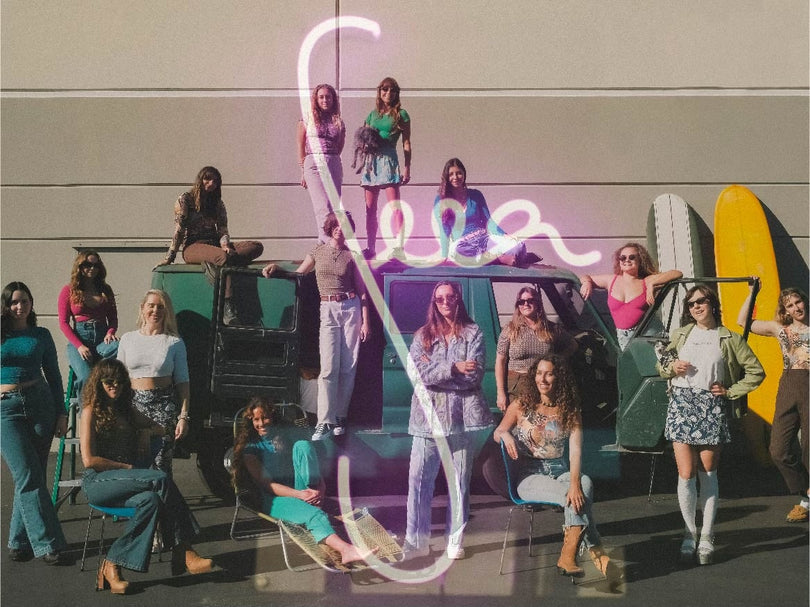
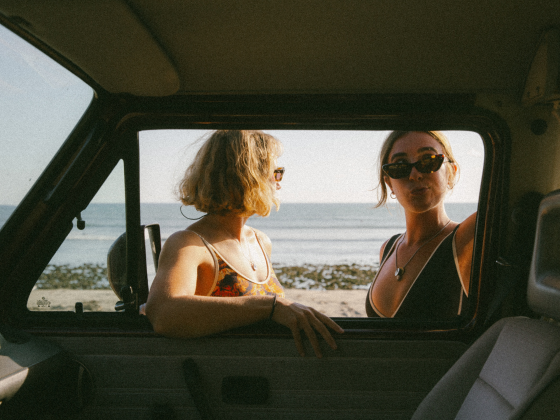
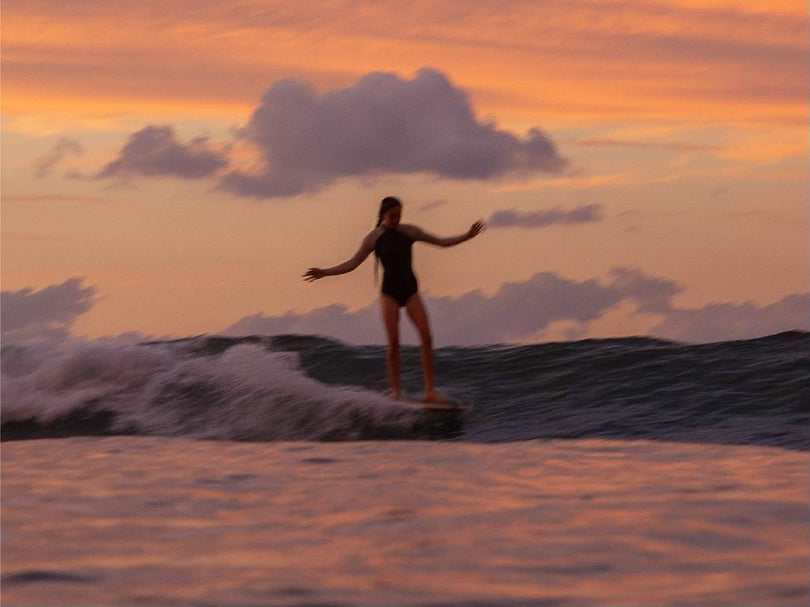
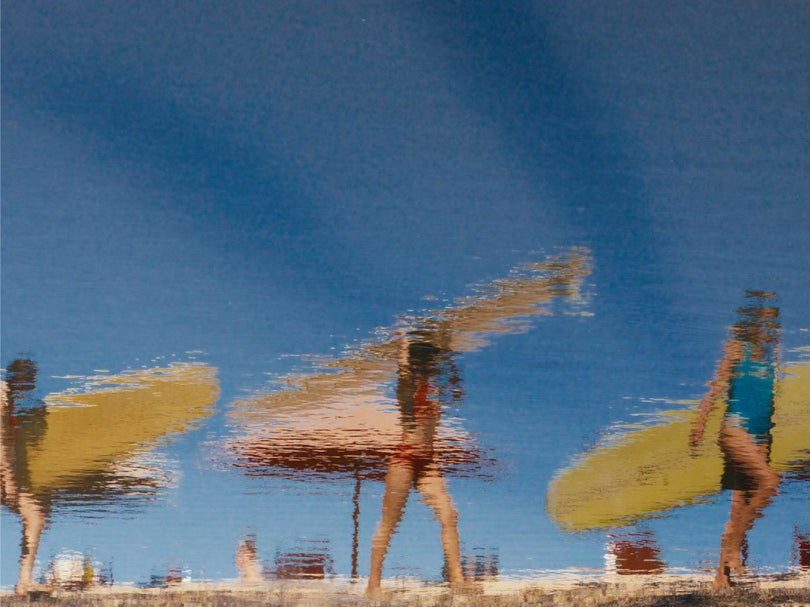
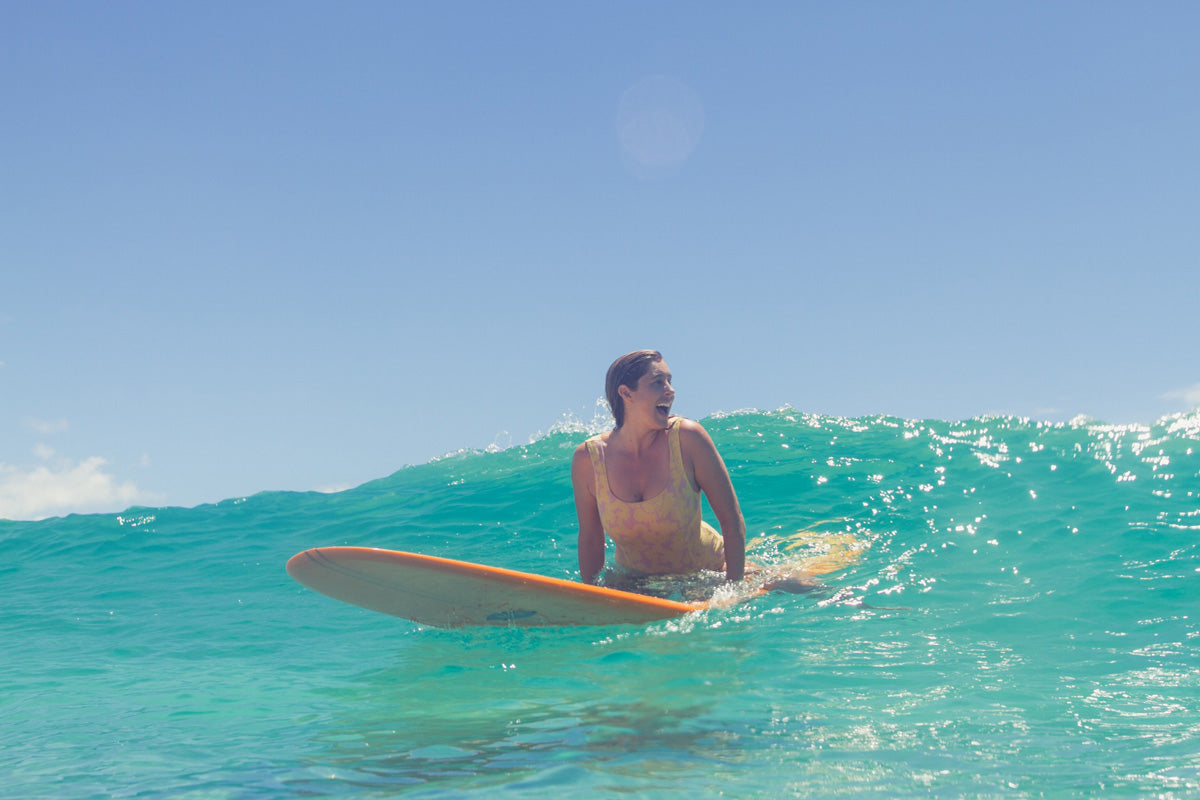
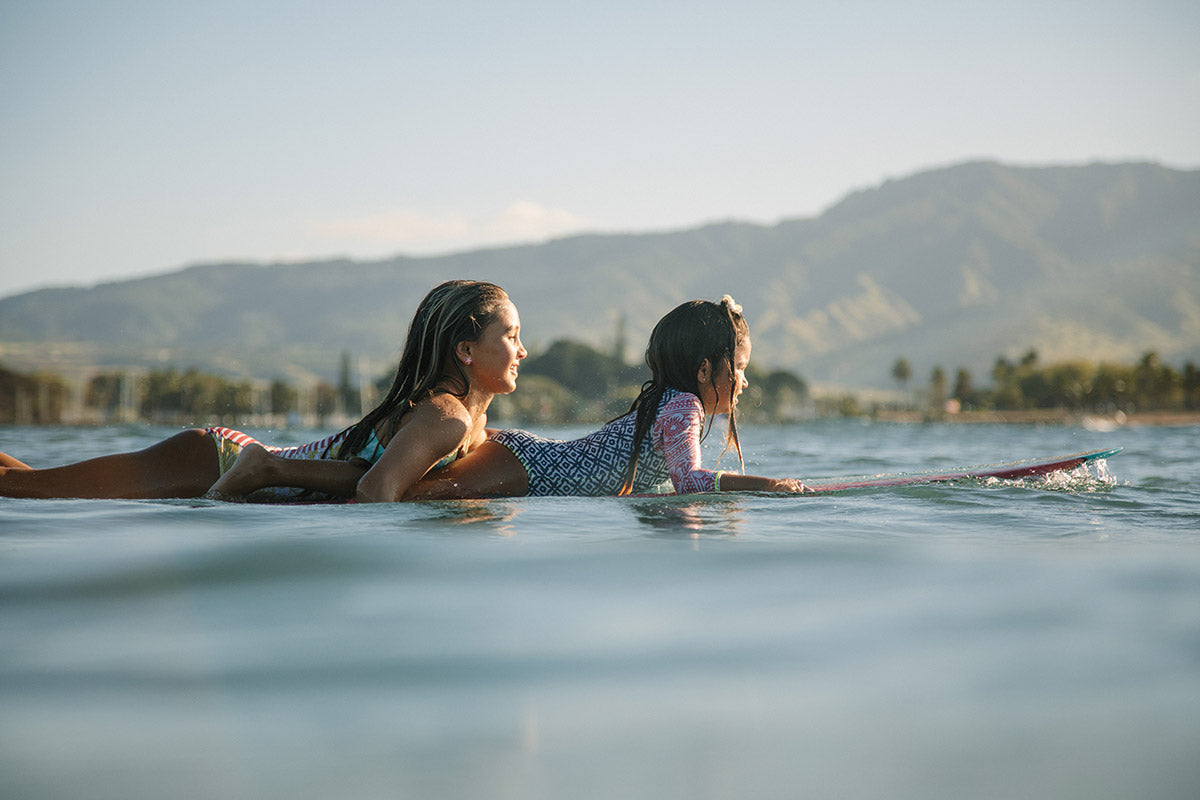
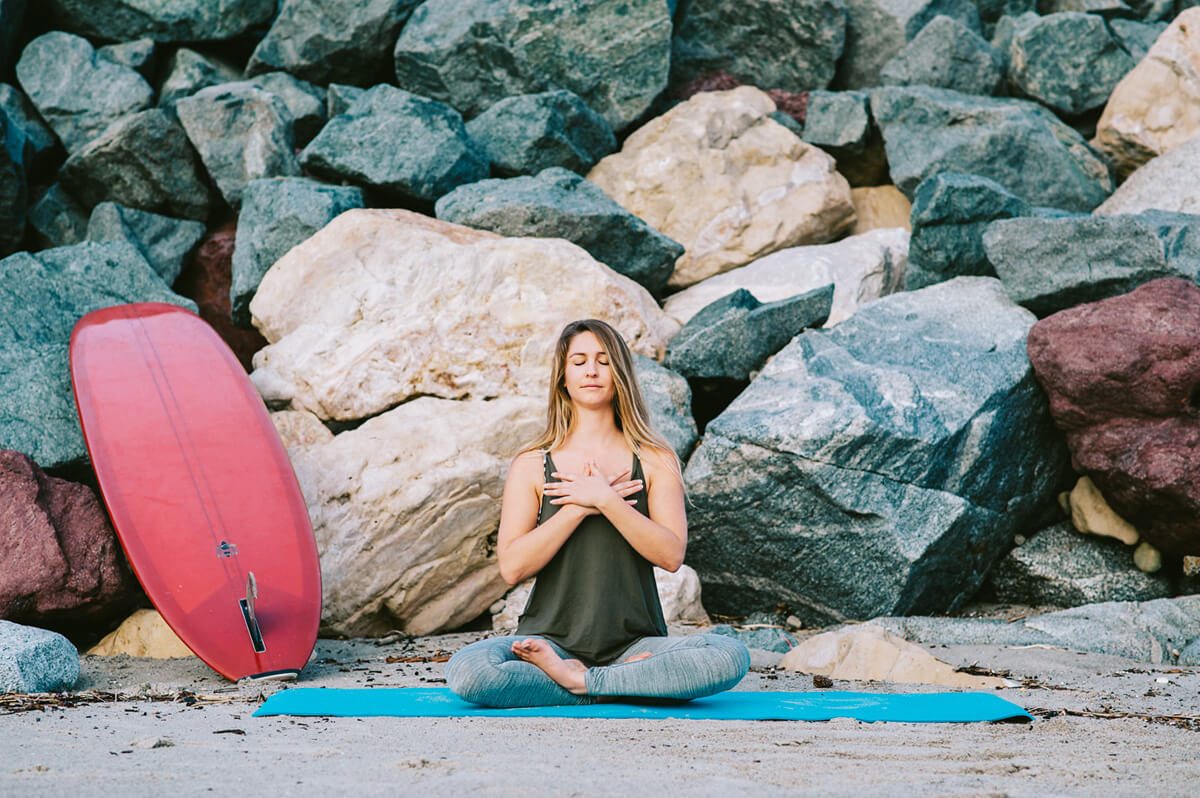
1 comment
Mary
Awesome woman and an awesome brand!
Awesome woman and an awesome brand!